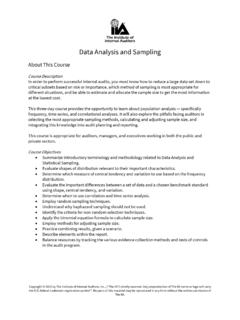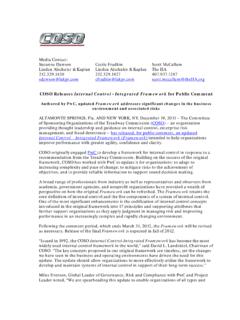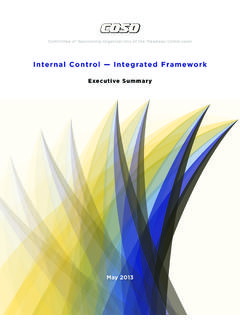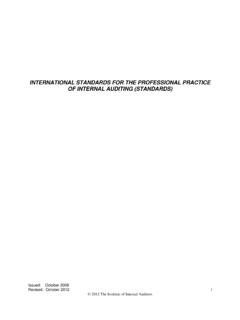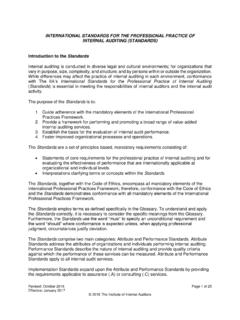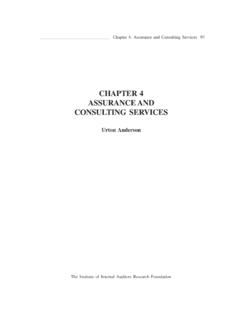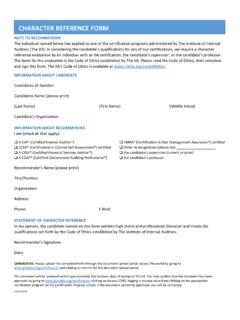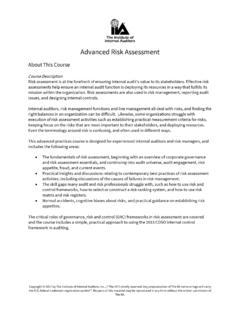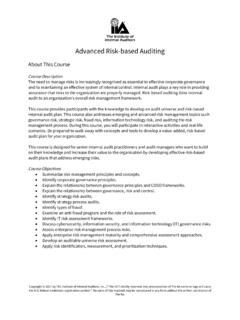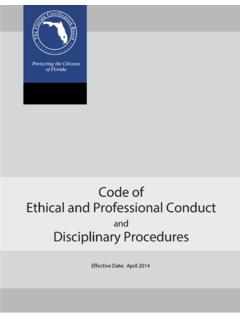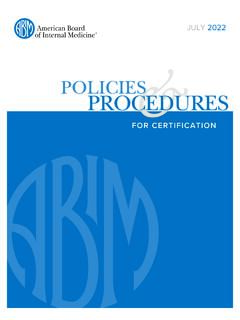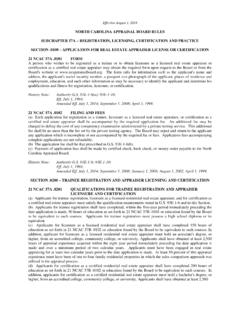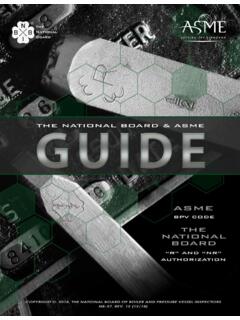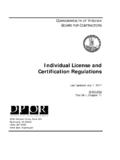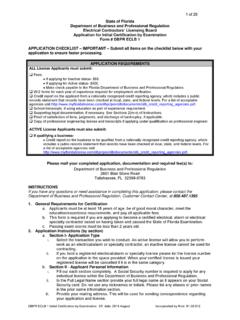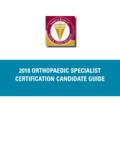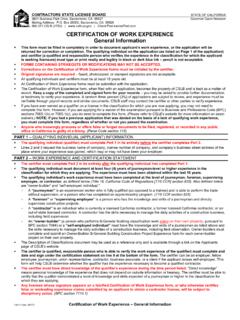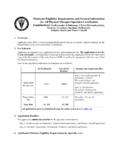Transcription of Continuing Professional Education Policy
1 Continuing Professional Education Policy : Requirements for Certification and Qualification Programs (formerly known as Administrative Directive #4) IIA Professional Certification board November 2017 2 | P a g e Contents 1. Introduction .. 3 2. Annual Reporting Requirements .. 3 Annual CPE Hours .. 4 Ethics Training .. 4 Standards 4 Code of Ethics 5 Hardship Exemptions .. 5 3. Qualifying CPE 5 Educational Programs .. 5 Measuring CPE Hours .. 6 Education Subject Areas .. 6 Other Qualifying Activities.
2 6 Passing Examinations .. 7 Authoring or Contributing to Publications .. 7 Translating Publications .. 7 Delivering Oral Presentations .. 8 Participating as a Subject Matter Expert Volunteer .. 8 Performing External Quality Assessments .. 9 4. CPE Reporting Process .. 9 CPE Reporting Fee .. 10 Annual Reporting Deadline .. 10 Failure to Earn or Report CPE Hours .. 10 5. Maintaining CPE Records .. 10 CPE Audit .. 11 3 | P a g e 1. Introduction The business world faces ongoing changes and emerging risks that impact how internal auditors meet their organizations needs.
3 As such, the knowledge and skills internal auditors need to possess to provide Professional assurance and consulting services continually evolves. The International Standards for the Practice of Internal Auditing (Standards) require internal auditors to enhance their knowledge, skills, and other competencies through Continuing Professional development. This requirement helps ensure that internal auditors remain competent in the growing and dynamic profession of internal auditing. Moreover, those who have obtained a Professional certification/qualification through The IIA (henceforth referred to as certified individuals ) are required to obtain Continuing Professional development.
4 This document, formerly known as Administrative Directive #4, outlines the Continuing Professional Education (CPE) requirements for the following IIA certifications and qualifications and specifies the CPE reporting process for certified individuals who wish to keep their certifications in good standing: Certified Internal Auditor (CIA ). Certification in Control Self-Assessment (CCSA ). Certified Government Auditing Professional (CGAP ). Certified Financial Services Auditor (CFSA ). Certification in Risk Management Assurance (CRMA ). Qualification in Internal Audit Leadership (QIAL ).
5 CPE requirements for the Certified Professional Environmental Auditor (CPEA ) and Certified Process Safety Auditor (CPSA ) are maintained under a separate Policy document and can be found online: 2. Annual Reporting Requirements The IIA requires certified individuals to self-attest annually that they have met the CPE requirements outlined in this document. Annual reporting requirements vary depending on whether the certified individual is practicing (actively performing internal audit or related activities), nonpracticing (not actively performing internal audit or related activities), or retired (no longer in the workforce).
6 Retired professionals are exempt from all reporting requirements for as long as they remain retired. It is the certified individual s responsibility to notify The IIA when he or she has retired, by submitting a status change form through the Certification Candidate Management System (CCMS). To maintain an active IIA certification/qualification, both practicing and nonpracticing certified individuals are required to: Obtain and attest to the completion of the required CPE credit hours annually. (Specific requirements vary depending on which certification/qualification they hold and whether they are practicing or nonpracticing.)
7 Obtain and attest to at least two hours of ethics training annually. Indicate whether they conform with the Standards. Abide by and attest to their conformance with The IIA s Code of Ethics. Details regarding each of these requirements, as well as hardship exemptions, can be found in the sections below. 4 | P a g e Annual CPE Hours The number of annual CPE hours required varies depending on the certification/qualification held and whether the certified individual is practicing or nonpracticing, as outlined in the following chart. Reporting Status Definition Use Certification / Designation?
8 CPE Hours for CIA CPE Hours for CCSA, CGAP, CFSA, CRMA, QIAL Practicing Actively performing internal audit or related activities Yes 40 20 Nonpracticing Not actively performing internal audit or related activities Yes 20 10 For individuals who hold multiple certifications /qualifications, the CPE hours earned for the CCSA, CGAP, CFSA, CRMA, and QIAL may be applied toward their required CPE hours for the CIA. In other words, if a practicing individual holds both the CIA and CRMA, and completes 40 hours of training related to internal auditing and risk management assurance, those hours can be used to satisfy the CPE requirements for both the CIA and CRMA.
9 More information regarding educational program criteria, how CPE hours are measured, acceptable curriculum, and other activities for which certified individuals can earn CPE hours are provided in the section below on Qualifying CPE Activities. Ethics Training Certified individuals are required to complete two CPE hours focused on the subject of ethics. Ethics training hours may be applied toward the individual s total annual CPE requirement. The IIA does not prescribe where an individual must obtain this training. However, the training must occur annually, within the reporting period.
10 Standards Conformance The Professional certifications board (PCB) requires that certified individuals recognize and understand the Mandatory Guidance component of The IIA s International Professional Practices Framework (IPPF), including the Standards. The IIA encourages certified individuals to obtain training related to the Standards if possible. At minimum, certified individuals must review the Standards annually, determine whether they perform internal audit services in accordance with the Standards, and report their conformance or nonconformance to The IIA. (Nonconformance with the Standards does not inactivate or otherwise negatively impact the individual s certification status.)
